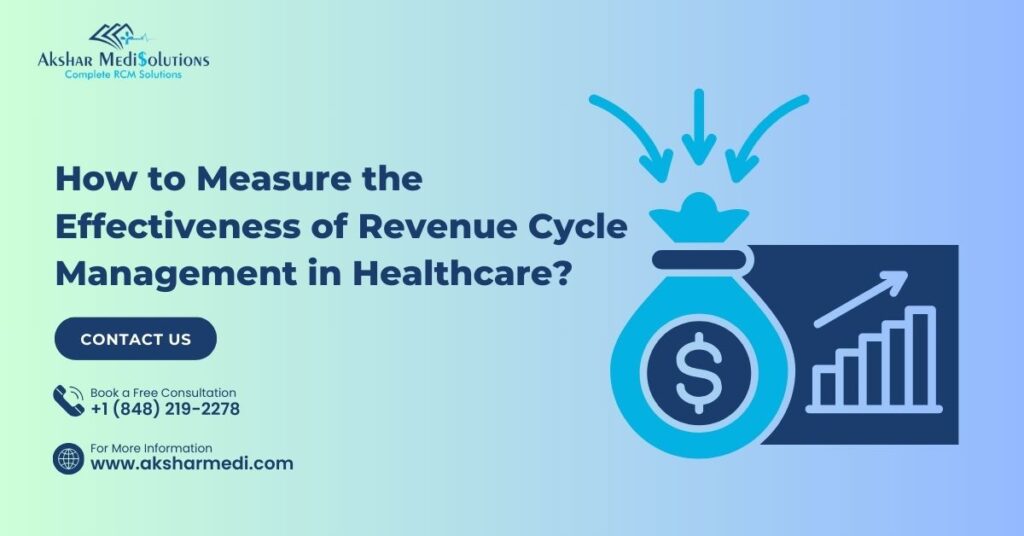Revenue Cycle Management (RCM) is more than just a financial process; it’s the lifeline of any healthcare organization. From patient registration to payment collections, RCM touches every aspect of a practice’s operations. Measuring its effectiveness ensures that your healthcare facility remains financially sound while delivering top-notch patient care.
Key Components of Revenue Cycle Management
Patient Registration and Eligibility Verification
Accurate data capture during patient registration lays the foundation for successful billing. Eligibility verification ensures that claims are processed without unnecessary delays, preventing costly errors later in the cycle.
Medical Coding and Billing
Accurate coding minimizes errors and ensures compliance with healthcare regulations, directly affecting reimbursement rates. Improper coding can lead to claim rejections and delayed payments.
Claims Submission and Denial Management
Submitting clean claims and managing denials promptly are crucial for maintaining a healthy cash flow. Effective denial management can resolve issues quickly and reduce financial losses.
Payment Posting and Reconciliation
This step ensures accurate recording of payments and helps identify areas for improvement in collections, providing transparency into a practice’s financial standing.
Why Measuring RCM Performance is Crucial
Poor RCM processes can lead to revenue loss, patient dissatisfaction, and compliance issues. By consistently monitoring RCM performance, healthcare providers can identify bottlenecks, reduce errors, and optimize financial outcomes. A strong RCM process directly impacts the financial health of a healthcare organization, ensuring sustainability while improving the patient experience.
Metrics to Measure RCM Effectiveness
To determine how well RCM is functioning, the following metrics are essential:
- Days in Accounts Receivable (A/R): Lower days in A/R indicate faster collections, ensuring a steady cash flow.
- Clean Claim Rate: A high clean claim rate reflects efficient claims submission processes, reducing denials and rework.
- Denial Rate: Tracking denial rates helps pinpoint issues in coding or documentation, enabling quick resolution.
- Patient Payment Collections: Measuring patient collections ensures that out-of-pocket payments are recovered promptly.
- Net Collection Rate: This metric reveals how much of the potential revenue is being collected, highlighting the effectiveness of your RCM.
You can also read: Common Issues with Healthcare Revenue Cycle Management
Tools and Technologies for RCM Analysis
Several tools and technologies can enhance the measurement and analysis of RCM performance:
- RCM Analytics Software: Advanced software solutions provide real-time insights into financial performance and help track key metrics.
- Automation in Medical Billing: Automation reduces manual errors, speeds up processes, and ensures compliance.
- Artificial Intelligence in RCM: AI-powered tools can predict denial patterns and recommend actionable insights for improvement, allowing healthcare providers to refine their processes continually.
Best Practices for Optimizing RCM Performance
- Streamlining Patient Data Entry:
Ensuring accurate and complete data at the registration stage minimizes downstream errors.
- Enhancing Staff Training:
Regular training ensures that staff stays updated on the latest billing codes and compliance requirements.
- Leveraging Advanced Billing Software:
Using modern billing solutions enhances accuracy and efficiency across the RCM process.
Challenges in Measuring RCM Effectiveness
Measuring RCM performance isn’t without its challenges. Common issues include inconsistent data, lack of standardization, and resistance to adopting new technologies. These challenges can make it difficult for healthcare providers to track performance effectively and identify areas for improvement.
Role of Outsourcing in Improving RCM Performance
Outsourcing RCM to experts like Akshar MediSolutions can alleviate the burden on in-house teams. With their expertise, you can reduce errors, enhance collections, and allow your team to focus on patient care. Outsourcing ensures that the RCM process is handled by professionals who are up to date with the latest healthcare billing practices and technology.
Case Studies: Success Stories with Effective RCM
Example 1: Reducing Denial Rates by 20%
A mid-sized clinic partnered with Akshar MediSolutions to optimize their billing processes. By streamlining the coding and claims submission processes, they achieved a significant reduction in denial rates, improving their cash flow.
Example 2: Improving Patient Collections by 30%
A healthcare provider used advanced payment tools to enhance patient collections. As a result, they increased their patient collections by 30%, leading to improved financial stability and patient satisfaction.
Don’t forget to check it out: The Importance of Revenue Cycle Management for Healthcare Providers
Conclusion
Revenue Cycle Management is vital for the financial health of any healthcare organization. By measuring its effectiveness and implementing best practices, healthcare facilities can ensure smooth operations, increased revenue, and improved patient satisfaction. Partnering with experts like Akshar MediSolutions can take your RCM to the next level and provide a robust solution for long-term success.
Frequently Asked Questions
RCM is the process of managing a healthcare provider’s financial cycle, from patient registration to final payment.
They offer tailored solutions, advanced tools, and expert teams to streamline every aspect of the RCM process.
RCM analytics software, automated billing tools, and AI-powered solutions are essential.
Accurate coding, thorough documentation, and real-time tracking are key to reducing denials.
Outsourcing reduces administrative burdens, improves accuracy, and ensures compliance, allowing small practices to focus on patient care.

